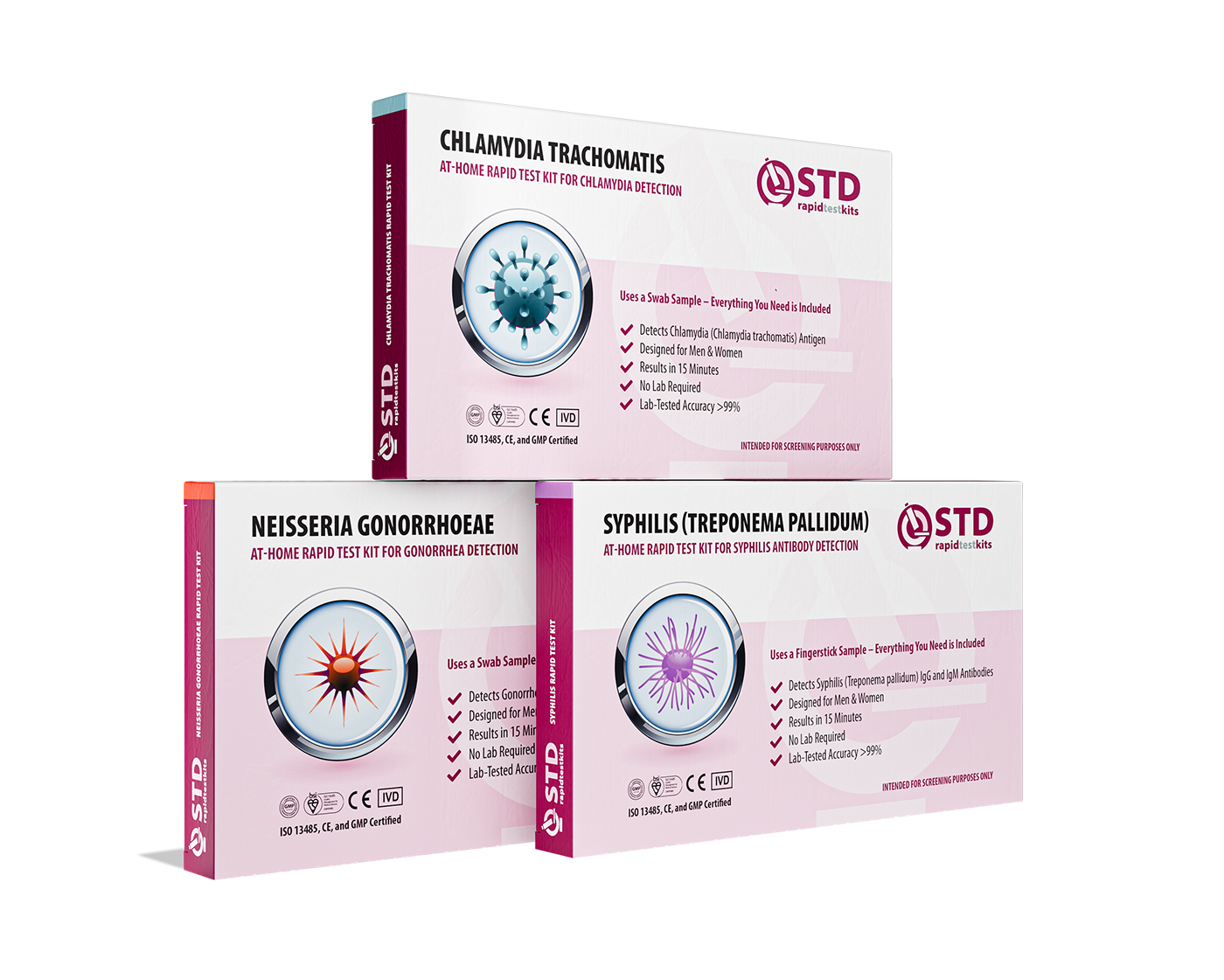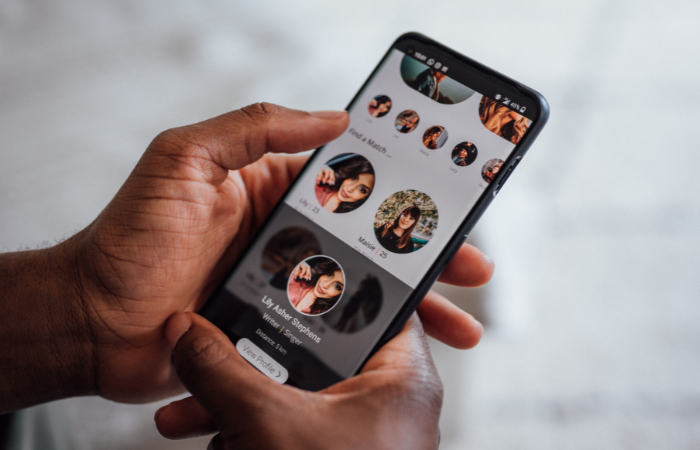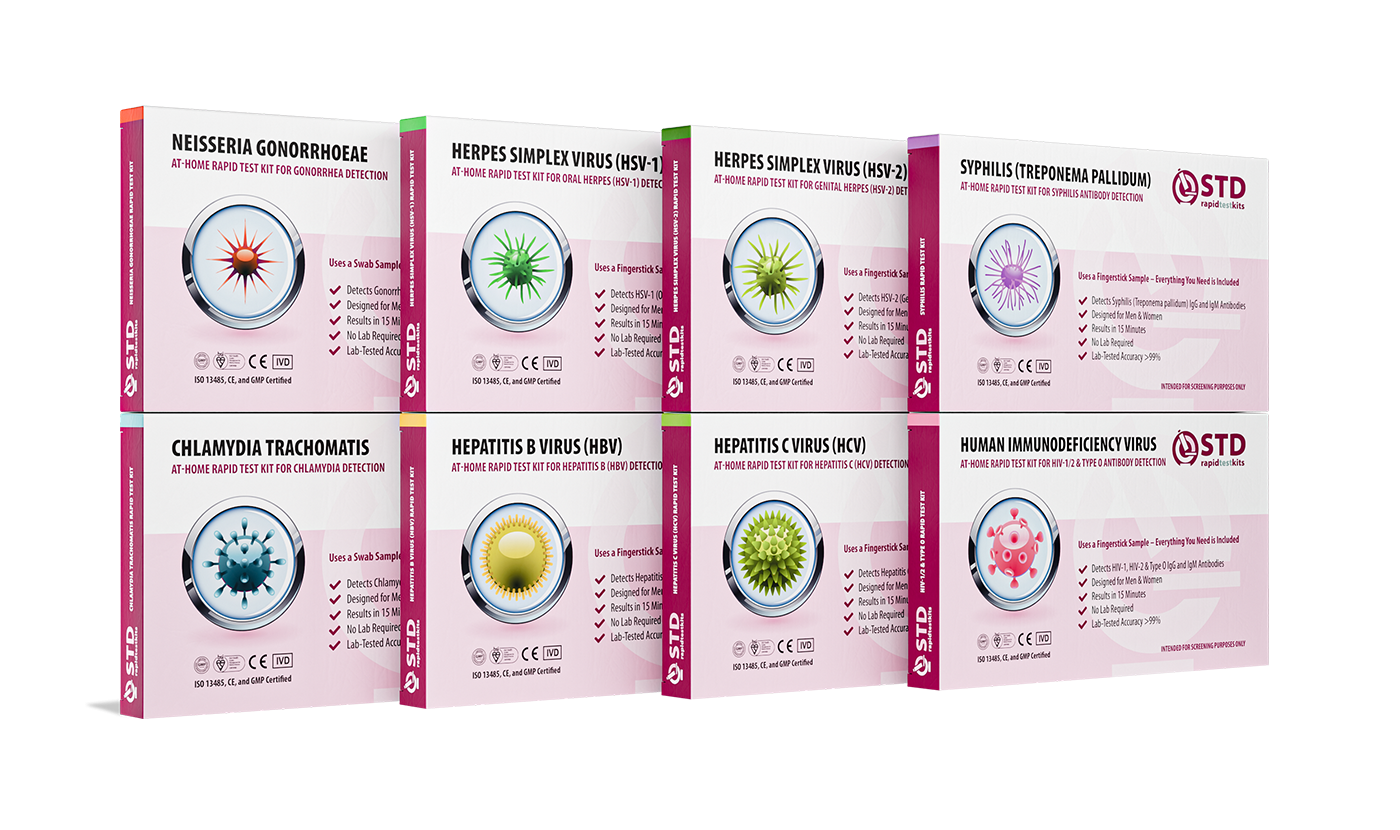Quick Answer: Telling someone you have an STD is hard because of shame, stigma, and fear of rejection. But it’s doable, and respectful. Pick a good time, stay calm, share the facts, and offer space. You’re not alone, and you’re not dirty.
This Isn’t Just About You, It’s About the Story We’ve Been Told
Most people don’t grow up learning how to talk about STDs. We’re taught they’re dirty. Shameful. A punishment for bad behavior. So when a diagnosis lands in your lap, even the most sex-positive person can suddenly feel like they’ve failed.
But here’s the truth: having an STD is part of being a sexually active human. STDs don’t only happen to “reckless” people. They happen to people in monogamous relationships, to queer folks, to virgins, to people who used protection every single time. They happen because bacteria and viruses don’t care about your morals.
So before you even think about disclosure, take a breath and remind yourself: This doesn’t define you. You’re not gross. You’re not broken. You’re just human, and now, you get to handle this with honesty and care.

People are also looking for: What if I have symptoms but my test came back negative?
Case Study: “He Got Mad, But He Also Got Tested”
Ty, 28, got diagnosed with gonorrhea after a casual hookup while he was seeing someone new. He panicked and waited four days before telling his partner.
“He was upset. At first, it felt like he was mad at me, but later he said he was just scared and confused. I gave him space, sent him info, and told him I’d go with him to get tested if he wanted. A week later, we were talking again.”
Not every story ends in ghosting. Not every partner walks away. Some people just need time, transparency, and a little support to process something big.
Okay, So When Do You Tell Them?
There’s no one perfect moment, but there are some guidelines. You don’t owe someone your full medical history on the first date. But if there’s a chance for sexual contact or emotional intimacy, it’s time to talk.
Pick a moment when:
- You’re calm. If you’re spiraling, give yourself time first. Journal, talk to a friend, or text a hotline.
- They’re present. Avoid rushed moments or times they’re distracted. Privacy matters.
- You’re not mid-hookup. If possible, have the conversation outside of a sexual moment. Pressure can skew communication.
It’s okay to say, “Hey,before we go any further, I want to share something important.” That one line can save you hours of spiraling, and it sets the tone for consent, respect, and care.
What the Hell Do You Say? Here’s a Script
You don’t have to be poetic. You don’t have to explain your entire dating history. And you definitely don’t have to apologize for existing.
Here’s a simple, no-drama script you can customize:
“Hey, I want to share something before we get more serious. I recently found out I have [insert STD]. It’s manageable/treatable, and I’ve learned a lot about it. I care about being honest with you, and I wanted to give you space to ask questions or decide what’s right for you.”
Key things to remember:
- Lead with clarity, not guilt. You’re offering information, not confessing a crime.
- Use neutral, non-blaming language. Avoid phrases like “I gave it to you” unless you’re certain, and even then, handle with care.
- Let them react. They might be shocked, quiet, or upset. That doesn’t mean they hate you, it means they’re processing.
You can even rehearse what you’ll say out loud or write it down and read it. There’s no wrong way to do this if it comes from a place of respect.
Check Your STD Status in Minutes
Test at Home with Remedium3-in-1 STD Test Kit

 For Men & Women
For Men & Women Results in Minutes
Results in Minutes No Lab Needed
No Lab Needed Private & Discreet
Private & DiscreetOrder Now $69.00 $147.00
For all 3 tests
The Reactions You Might Get (And How to Handle Them)
Not every partner is going to thank you and hold your hand. But not every partner is going to leave you either. Here’s what you might hear, and what to do:
- “I need time to think.”
Respect it. You’ve had time to process, give them that gift too. Follow up, but don’t pressure. - “Where did you get it?”
Be honest if you know, but it’s okay to say, “I’m not totally sure. I’ve been tested before, but STDs can be silent.” - “I can’t deal with this.”
That hurts. But it’s not a reflection of your worth. Some people aren’t ready for these conversations. That’s about them, not you. - “Thank you for telling me.”
This might happen more often than you think. Honesty builds trust, even when it’s hard.
One thing to avoid: trying to control their reaction. Your job is to disclose, not to script their emotional journey. Give them space, and boundaries if needed.
Let’s Talk About Hookups, Dating Apps, and Casual Sex
What if it’s not your long-term partner? What if it’s someone you just met on Grindr, Tinder, or Bumble? Do you still have to tell them?
Legally, it varies by location. Ethically? If there’s a risk of transmission, the answer is yes. Especially for STDs like herpes, HIV, syphilis, and chlamydia, you owe it to your partners to be up front.
But that doesn’t mean you have to overexplain. Here’s a short version:
“Hey, just want to be transparent, I have an STD, it’s being managed, and I take precautions. Let me know how you feel about that.”
Sometimes they’ll walk. Sometimes they’ll stay. But every time, you’ll be showing integrity, and protecting others.
Pro tip: Add your status to your dating profile if you feel safe. It can filter out drama before it starts and attract people who already understand.

People are also looking for: Will I be protected by the Hepatitis B vaccine?
Take Back Control: At-Home Testing Is a Power Move
One way to ease disclosure anxiety? Make testing a shared, proactive part of your relationships.
This at-home combo STD test kit lets you test for common infections like chlamydia, gonorrhea, HIV, and more, privately, quickly, and discreetly.
You can even say, “Hey, I got tested recently, and something came up. Do you want to test together?” It shifts the convo from confession to care.
When You Didn’t Know, and Already Slept With Them
This one’s rough. You just got your results, and now you realize someone you hooked up with could’ve been exposed.
Here’s what not to do: disappear. Ghosting doesn’t undo exposure; it just adds betrayal on top of risk.
Here’s what to do instead:
- Reach out. A simple message works: “Hey, I just found out I tested positive for an STD. I didn’t know when we were together, but I wanted you to be informed so you can get tested too.”
- Provide resources. Link them to CDC STD pages or home test kits. This isn’t just disclosure; it’s harm reduction.
- Don’t drown in guilt. Most STDs are asymptomatic. You probably didn’t know, and even if you suspected, you’re not a monster. You’re a person who now gets to make it right.
If they rage, block, or shame you, remember: you told them because you respect their health. That’s bravery, not failure.
For the Ones Who Gave It to You
So... what about the person who gave it to you?
This is complicated. Sometimes they knew and didn’t tell you. Sometimes they didn’t know. Sometimes you’ll never be 100% sure.
You can approach it with curiosity and boundaries:
“I tested positive for an STD. Just wanted to let you know in case you weren’t aware or want to get tested too.”
You don’t need to accuse. You don’t need to fight. But you deserve to name what happened, especially if they knowingly put you at risk.
If you’re navigating trauma from being knowingly exposed without disclosure, you are allowed to be angry, and to seek support. RAINN and other trauma-informed helplines can help you sort out what’s next emotionally and legally.
Check Your STD Status in Minutes
Test at Home with Remedium8-in-1 STD Test Kit

 For Men & Women
For Men & Women Results in Minutes
Results in Minutes No Lab Needed
No Lab Needed Private & Discreet
Private & DiscreetOrder Now $149.00 $392.00
For all 8 tests
If You're Dating With a Chronic STD Like Herpes or HIV
This isn’t a one-time conversation. It’s part of how you date now, but it does get easier.
Here’s what many people find helpful:
- Learn your facts. Understand how transmission works, what meds reduce it (like PrEP for HIV or suppressive therapy for herpes), and how to talk about it calmly.
- Disclose early, but not too early. Once there's interest or potential for sex, have the convo. But don’t lead with your diagnosis, it’s not all of you.
- Use affirming language. Say: “I have genital herpes. I take daily meds and haven’t had an outbreak in over a year. I always disclose because I respect people’s choices.”
You’d be shocked how many people say, “Thank you for telling me” or “That’s totally manageable.” Because it is. It really is.
How Queer and Trans Folks Navigate Disclosure Differently
STDs don’t discriminate, but disclosure dynamics can hit harder for queer, trans, and nonbinary people navigating sex, safety, and judgment.
Here’s what comes up most:
- Medical trauma or gatekeeping. Some LGBTQ+ people avoid testing or treatment because of bad past experiences with doctors.
- Internalized shame. Being queer already makes you feel “othered”, adding herpes or HPV can stack that stigma.
- Fear of being seen as a “risk.” Especially in hookup apps where people already fetishize or exclude based on identity.
If this is you, your fear is valid, but your diagnosis does not cancel your worth. Your body is not a liability. It’s worthy of love, sex, and informed consent, just like anyone else’s.
Find your people. Apps like Positive Singles or forums like r/Herpes can help you meet folks who understand. You’re not alone in this.
When You Didn’t Know, and Already Slept With Them
This one’s rough. You just got your results, and now you realize someone you hooked up with could’ve been exposed.
Here’s what not to do: disappear. Ghosting doesn’t undo exposure, it just adds betrayal on top of risk.
Here’s what to do instead:
- Reach out. A simple message works: “Hey, I just found out I tested positive for an STD. I didn’t know when we were together, but I wanted you to be informed so you can get tested too.”
- Provide resources. Link them to CDC STD pages or home test kits. This isn’t just disclosure; it’s harm reduction.
- Don’t drown in guilt. Most STDs are asymptomatic. You probably didn’t know, and even if you suspected, you’re not a monster. You’re a person who now gets to make it right.
If they rage, block, or shame you, remember: you told them because you respect their health. That’s bravery, not failure.

People are also reading: The Reality of Oral Transmission of Herpes (HSV2)
When You’re More Afraid of Losing the Relationship Than the STD
This is the quiet part no one talks about: sometimes, it’s not the infection that wrecks us, it’s the fear of being left. Of being unlovable. Of watching someone you care about look at you differently, or worse, walk away.
If that fear is paralyzing you, here’s a truth to hold onto: you deserve a relationship that can hold your humanity. And yes, that includes your health history. If disclosure ends things? That hurts, but it also protects you from investing in someone who couldn’t handle the real you.
Strong relationships don’t avoid hard truths, they get stronger because of them. And if your relationship can’t survive a conversation about something common, manageable, and incredibly human? It probably wasn’t as safe as you hoped.
Shame Doesn’t Protect You, But Honesty Might
Shame is sneaky. It tells you to stay silent. It tells you that no one will love you. That your diagnosis is a permanent scarlet letter. But shame is a liar, and silence doesn’t make you safer. It just delays the healing.
STD disclosure is one of the most courageous things you can do, not just for the other person, but for yourself. It’s how you reclaim your body, your voice, and your story.
If you’ve been sitting in that dark place, afraid to speak, know this: your honesty could be the thing that sets someone else free. You’re not just managing a diagnosis. You’re modeling what sexual integrity looks like. And that’s f*cking brave.
FAQs
1. Is it okay to go out with someone who has an STD?
Yes. A lot of people who have STDs are in happy, loving relationships. Being honest, open, and safe is very important.
2. Should I tell someone I have an STD before we have sex?
Yes, morally, especially if there is a chance of transmission. It depends on where you live and what kind of infection you have.
3. How do I tell someone I have herpes?
In a way that is calm and clear. Let them know that it's normal and that they can handle it. Let them ask questions and show that you respect their answer.
4. Will people think I'm dirty if I have an STD?
Some people might, though, because of the stigma. But that's their issue. You don't get dirty from STDs. They turn you into a person.
5. Should I wait until we're in a serious relationship to say?
Tell them ahead of time if there is a chance of sex. It shows that you trust them and respect their decisions.
6. What if I don't know who gave me the disease?
That's normal. Many STDs do not have any symptoms. Don't blame anyone until you have proof, and be honest.
7. Could I get in trouble with the law if I don't tell someone?
Maybe. In some places, not telling someone about certain STDs, like HIV, can get you in trouble with the law. Talk to an expert or look up the laws where you live.
8. What if I gave someone an STD by accident?
It does happen. The best thing to do when you find out is to tell them, offer to help, and tell them to get tested.
9. What can I do to get over the guilt?
You shouldn't feel bad about feeling guilty. Use it as a guide to do the right thing, test yourself, tell the truth, and move forward honestly.
10. Can being open be sexy or give you power?
Yes. It's a sign of maturity to be able to share your status with kindness, confidence, and clarity. It can help people trust and be close to each other more.
You Deserve Answers, Not Assumptions
This isn’t about fear. It’s about freedom. About owning your body, your story, and your right to be honest, without shame weighing you down. STD disclosure is hard, but you’ve just learned how to do it with strength, dignity, and care.
Take a deep breath. Practice what you’ll say. And remember: anyone worth being intimate with is someone who deserves the truth, and who will respect you for giving it.
Don’t wait and wonder; get the clarity you deserve.
Sources
1. Conversation Tips for Disclosing STIs – CDC
2. How To Tell Someone That You Have an STD or STI – Cleveland Clinic
3. 10 STI Conversation Tips to Help You Talk to Your Partner – Marriage.com
4. How Do I Talk With My Partner About STD Testing? – Planned Parenthood
5. How to Tell Your Partner You Have an STI – BridgerCare
6. Partner Services: Notifying Partners After an STI Diagnosis – CDC










